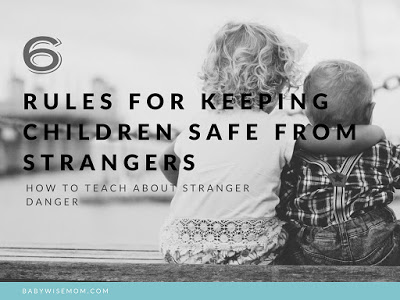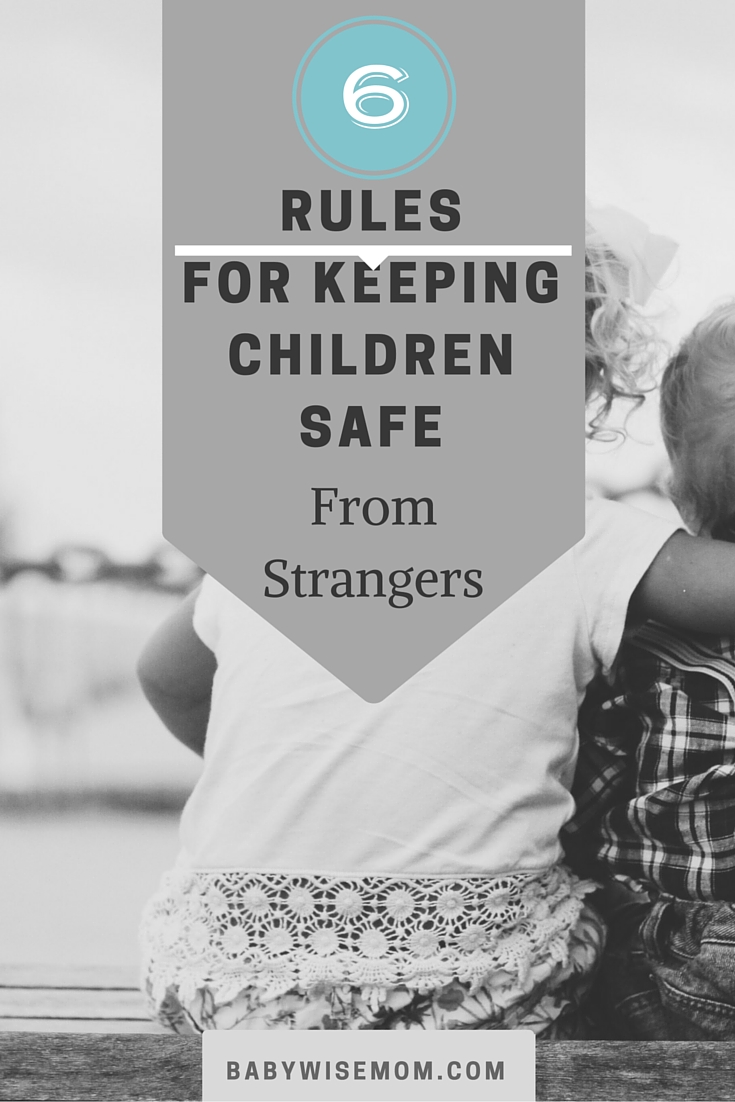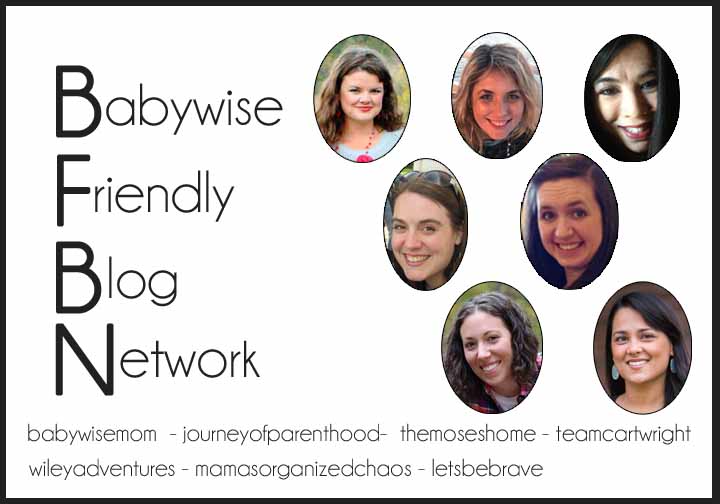I am living in a conflicting state of mind. I bet many of you are, also.
On this one hand, I want my children to have freedom to just be children. I want them to be able to roam and play like I could as a child. I want them to be able to ride their bikes several blocks to a friend’s house. I want them to be able to live with more spontaneity and not so much “play date” planning. I read Free Range Kids (affiliate link). I loved the book. I agree we might be overly paranoid and sensitive living in our 24 hour news media culture.
But then there is my other hand. By nature, I am a “better safe than sorry” kind of gal. And I don’t care if “only” a small percentage of children ever get kidnapped when doing xy and z. If my child became a statistic, I would wish I had been more careful.
More paranoid.
More crazy.
There are scary things going on out in that world, and they are things I do not want my child being victims of. I have shared a couple of times on Facebook that I am starting to get more involvement with ways to help stop the human trafficking industry, and the more I learn about that, the more I want my children on a leash. Tied to me.
I recently took my children to a water park by myself. I have children ranging from 11 down to 3. Obviously, we were going to have some differences of interest levels in where the kids would want to play. My oldest is a competitive swimmer. My second has long ago passed off all requirements to be able to join a swim team. My third child had only dives left to pass of (though she is done now!). They all love to swim and are comfortable in the water.
My fourth child, however, has a fun tradition of crying through her lesson (though she oddly does what her teacher says. She just cries while doing it). You have heard about that if you follow me on Instagram. She isn’t afraid of the water as a whole, but she is not so comfortable or daring to go down big slides or even chill in the lazy river. Clearly the children weren’t all going to want to hang around in the same area at all times.
We had an hour drive to get there, so on the drive, we talked about safety. Specifically, stranger danger type of safety. It isn’t the first time we have talked about it, and they hear it all the time at school (wahoo!). They knew the drill. But I followed Ask and Tell and we went over it. Repeatedly. I was a man down and I made sure they were solid.
Post Contents
Adults Don’t Ask Children For Help
This is my number one reminder for my children always. Adults do not ask children for help. Adults ask adults for help. I tell my children they do not have to help an adult unless it is a parent (me or their father). Sadly, in our world, if the new man who moved in a few doors down saw my children outside as they walked between my house and a neighbor’s house and asked them to come help him move some boxes in, I would want them to say no essentially. I would want them coming home and asking me about it before doing it (and I would only permit it if a parent was with the child). And an adult shouldn’t be calling out to a child for help moving boxes into his house.
Here is the funny reality, though. While most adults aren’t going to ask children for help, there are always going to be those people who haven’t realized it isn’t okay and will ask a child for help anyway. And the person will really need some help and will probably grumble, “Kids these days” when the children say no and exit post-haste. So they might get asked for help quite innocently.
My children are also taught to respect elders and such. How does a child respect elders and stay safe? So I explained, “If someone asks you for help, respond, ‘I am sorry; I can’t help you with that. You could ask a lifeguard for help.’ ” I think that can give the naive asker a hint, it allows the children to still have manners, and it prevents the child from helping out of guilt.
A lot of people will encourage you to tell your child to not be polite to a stranger. I am not in that camp. I think you can start with a polite decline. You are both still in a public place and the perpetrator isn’t getting your child alone. If the person got more aggressive, then we move to fighting and yelling.
Also, be sure your children understand that if an adult is trying to push the child to do something, the child is always free to use you as the scapegoat. Blame mom. “My mom will be very upset with me if I do that with out her permission first.” “My mom has told me I am not allowed to go into anyone’s home without asking her permission first.”
Always Ask For Permission
Along a similar idea, teach your children to always ask you for permission before moving locations. This is a level of overkill that will stifle some parents. You want your child to be able to just roam and wander like we did in the good old days. I get that. I have this rule in place to protect my children and to always know where they are. Neighbor invited them over? Great. Let me know before going. Leaving one neighbor house to go to another one? Sounds fun. Let me know about it.
Just today, Brayden asked to go to one neighbor’s house. I told him yes. A different neighbor girl then told Kaitlyn and McKenna that I said they could go over there (very innocent; I had told Brayden yes so she passed that permission on to all of the children). So they went without talking to me. I called the mom up and had her send the girls home. I explained to my girls that they needed permission from me to go to the neighbor’s house. They needed to check in with me before taking off to go there.
Explain to your children that if they have to sneak to do something, then that thing is not a good thing to be doing. Not all things kids do without asking are sneaky, in fact, probably most are not, but there are times the sneaky will come up and you want your child to understand that it isn’t okay and it isn’t safe.
Having the policy to ask is a great one for keeping a child safe from both strangers and potential perpetrators they know. Most children are victimized by people they know. If that person tells the child to sneak into a room with them, your child will know that is against the rules to sneak. If a stranger asks your child to help find a dog, your child knows she needs to ask permission first. It keeps your child out of potentially compromising situations.
Trust Your Instincts
Teach your child to trust his/her own “gut.” If they don’t feel good about it, teach them to listen to that feeling and get away from the situation.
If Someone Persists, Fight Back
Let’s say your child has done the first few perfectly and yet the person persists. The person starts to follow your child or gets aggressive and tries to grab your child. This is when your child drops manners and fights back. Tell your child to run, yell, scream, flail, and scratch. Teach your child to yell a phrase to make it clear that this isn’t just a giant tantrum between a parent and a child. “Who are you?” “Where is my mom?” “Someone help me I don’t know this person!”
Find a Mother with Children
Let your child know that if she has a bad feeling and/or needs to get away, she can go to a mother with children and ask her for help. This is kind of down on the list of steps because your aren’t always going to be safe just because it is a woman with children. However, of all of the adults out there wandering around, I think this is your best bet. Obviously a police officer would be fantastic, but most of us do not have police officers around at all times. You see a lot more mothers with children in a day than you see police officers.
Have Phone Number and Names Memorized
Once your child is with this nice helper, you want your child to get in contact with you. Make sure your child knows your name and phone number. Address is also helpful. If your child isn’t old enough to have these things memorized, you really shouldn’t allow your child to be unsupervised. Most children can memorize these things in full as a 4 or 5 year old. You can still teach the other steps to a child who doesn’t have these things memorized, you just don’t want a child who can’t figure out how to get back to you out and about without a responsible person watching your child.
Conclusion
We can sit back and reminisce about how much better our own childhoods were. We can bemoan the type of world our children are growing up in. We wouldn’t be the first generation to do this. Our parents scoffed at our childhoods, too. They just weren’t so connected to the entire world to see so many people also scoffing.
Here is reality. We live in a different world. For better or worse (some of both I am sure), it is different. Our grandchildren will grow up in a different world from their parents. The cycle will continue.
We need to look at the situation as realistically as we can, analyze the situation, determine what is reasonably safe for our own circumstances, and create rules based on that. Our children won’t have the same childhood experiences we did. They will have their own. Someday, they will be laughing that the “You know your a child of the 2000s” lists just like we do for our own decades. We need to face our own inner conflicts, look at both of our hands, and figure out how to get those two conflicting hands together in a way that provides safety while allowing for a reasonable amount of space for growth. Take that conflict and resolve it. It isn’t one or the other, it has to be a new way.
The ladies of the BFBN are all taking a turn this week to talk about the importance of teaching your children how to stay safe. Here is the schedule:
Monday: Valerie at Chronicles of a Babywise Mom
Tuesday: Emily at The Journey of Parenthood
Wednesday: Kimberly at Team Cartwright AND Natasha at Let’s Be Brave
Thursday: Carrie at Wiley Adventures
Friday: Katrina at Mama’s Organized Chaos



